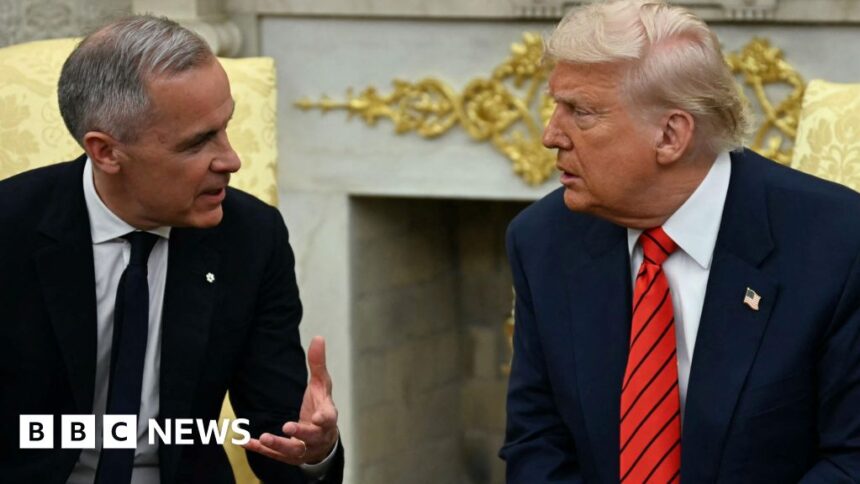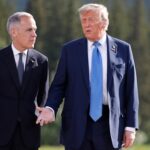Bilateral trade negotiations between Canada and the United States have abruptly halted this week as tensions escalate following inflammatory remarks from former President Donald Trump during a campaign rally in Pennsylvania. The suspension comes at a critical juncture when both nations were attempting to resolve longstanding disputes over lumber, dairy, and automotive supply chains.
Canadian Prime Minister Justin Trudeau confirmed the development during an unscheduled press conference in Ottawa yesterday. “We remain committed to fair and balanced trade relations with our American partners, but negotiations require good faith and mutual respect,” Trudeau stated, visibly frustrated. “Recent rhetoric has undermined the constructive atmosphere needed for productive discussions.”
The suspension follows Trump’s comments suggesting he would implement “the biggest tariffs in history” against Canadian goods if re-elected, specifically targeting the country’s forestry and agricultural sectors. Sources familiar with the negotiations indicate that Canadian officials were blindsided by the aggressive stance, particularly as preliminary agreements on softwood lumber had been making progress in recent months.
Economic analysts at the Royal Bank of Canada estimate that disruptions to the Canada-U.S. trade relationship could potentially impact up to $2.5 billion in cross-border commerce if the diplomatic standoff continues through summer. “This isn’t merely political theater,” explains Dr. Eleanor Vasquez, senior trade economist at the University of Toronto. “When negotiations stall between the world’s longest undefended border partners, real economic consequences follow for communities on both sides.”
The trade relationship between Canada and the United States remains one of the most integrated in the world, with approximately $1.7 billion in goods and services crossing the border daily. The automotive sector is particularly vulnerable to disruptions, with parts often crossing the border multiple times before final assembly.
Canadian Trade Minister Mary Ng emphasized that technical discussions at lower levels will continue despite the high-level suspension. “While ministerial talks are paused, our departments remain engaged on practical matters,” Ng clarified. “We cannot allow political rhetoric to completely derail decades of economic integration.”
The White House has attempted to distance itself from Trump’s comments, with Press Secretary Karine Jean-Pierre stating that “the Biden Administration remains committed to our valued partnership with Canada.” However, Canadian officials have reportedly requested formal clarification regarding the current administration’s position on several contentious trade issues.
Business leaders from border communities have expressed alarm at the deteriorating diplomatic climate. “We’ve spent generations building integrated supply chains that benefit both countries,” said Thomas Rivard, president of the Windsor-Essex Regional Chamber of Commerce. “Political posturing threatens thousands of jobs that depend on predictable cross-border commerce.”
As markets react to the uncertainty, the Canadian dollar weakened slightly against the U.S. dollar, reflecting investor concerns about potential disruptions to supply chains and export markets. The Toronto Stock Exchange’s S&P/TSX composite index fell 1.2% on news of the suspended talks.
For everyday Canadians and Americans, the implications extend beyond economics into practical concerns. “People forget that trade disputes affect real products on store shelves,” notes consumer advocate Sarah Mitchell. “From dairy prices to construction materials, these negotiations ultimately impact household budgets in both countries.”
As both nations approach critical electoral cycles – with Canada potentially facing an election within the next year and the U.S. presidential race intensifying – observers worry that trade relations could become further entangled in political calculations rather than economic realities.
With diplomatic channels temporarily narrowed, what long-term damage might this suspension inflict on the world’s most successful bilateral trading relationship, and can decades of economic integration withstand the growing pressures of populist politics on both sides of the border?


















